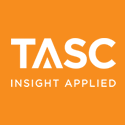
The Northern Virginia and Potomac region’s concentration of data analytics businesses and workers, federal government presence and STEM educational potential positions it to compete as the “nation’s data capital,” according to a research report released last month by consulting firm Attain LLC, the Northern Virginia Technology Council, a tech membership and trade association and George Washington University.
Conducted by Chmura Economics & Analytics, a Richmond, Va.-based consulting firm that specializes in forecasting economic growth, the report highlights the extent to which big data expertise, experience and assets dominate the region making capturing market share in big data and analytics more feasible for the region’s businesses.
“With years of experience in what is still an emerging field, companies in this region are ready to capture an even greater market share within the Big Data and Analytics sector,” said Attain Chief Executive Greg Baroni. “Northern Virginia and the greater Potomac region represent the nation’s data capital, with a heritage of data management and analysis expertise that is coupled with relevant domain knowledge across some of the vertical industries showing the greatest growth potential for Big Data and Analytics related services.”
With No.Va. respondent firms generating an estimated 717 terabytes of new data daily, according to the report, the research suggests that the region’s big data and analytics firms estimate their average annual employment will grow during the next three years at a rate that’s three times higher than the growth the Labor Statistics Bureau forecasts for all occupations over the next ten years.
Moreover 70 percent of the region’s respondent institutions of higher education said they offer or intend to offer by 2015 courses or programs targeted at big data and analytics.
The sentiment suggests educators see themselves as critical to increasing the workforce skill that would augment the region’s market share in the analytics and big data sector — a pipeline which currently faces a talent gap when it comes to science, technology, math and engineering.
“As educators, we must ensure we capture the opportunities presented by this emerging market by preparing a next generation of the best and brightest data scientists and analysts,” said Ali Eskandarian, a dean within George Washington University’s Virginia Science and Technology Campus and College of Professional Studies. “At GW, for example, we are making significant investments in Big Data, particularly with the Computational Biology Institute and the forthcoming genomics and engineering research institutes.”
For a more in-depth look at the research released May 9 at a GWU event, click here.


